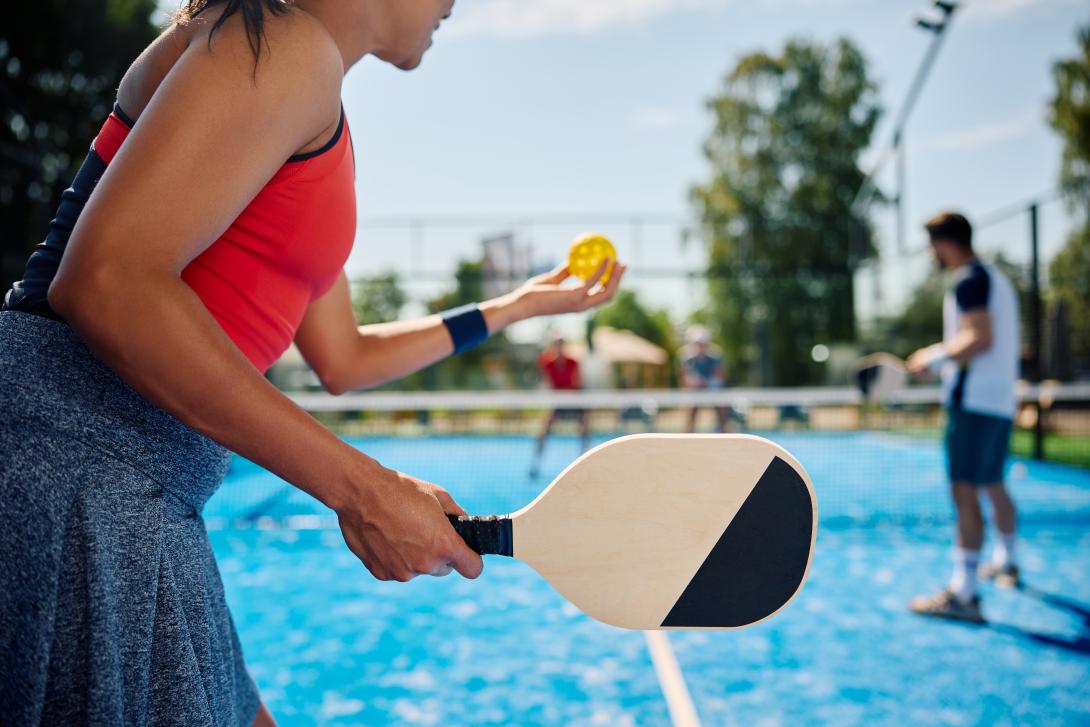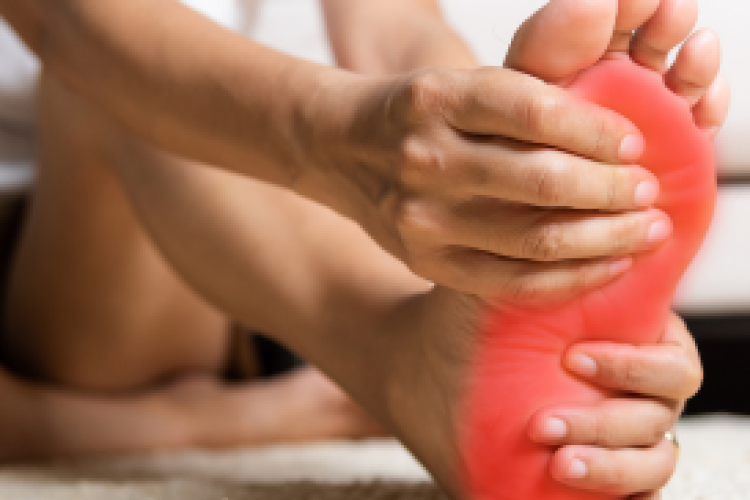
The popular sport has benefits, if you take steps to play it safely
It’s been called the fastest-growing sport in America. Pickleball, a cross between tennis and ping pong, has plenty of health benefits. Jason Fond, M.D., Director of Orthopedic Surgery at Montefiore Nyack Hospital, says pickleball is so popular in part because people of many ages, activity levels and athletic skills can play.
“It has a lot of people moving who weren’t as active before they started playing pickleball,” he said. “It can make you more mobile, decrease stiffness in your joints and improve your heart health. There are also mental and emotional benefits to being active. Plus it’s a social sport, which is beneficial too.”
With increasing popularity has come a rise in injuries from pickleball. Dr. Fond says injuries from pickleball can range from an inflamed tendon in the elbow (“tennis elbow”) to a sprained ankle to a broken bone.
Preventing Injuries
It’s common for a person who’s been playing pickleball for a few weeks or months to start complaining of pain in their wrist, elbow or shoulder. “These are called repetitive action or overuse injuries,” Dr. Fond said. “Even people in great physical shape can have ligaments and tendons that become inflamed and develop tears. That can lead to tennis elbow, wrist injuries or shoulder strain.”
Some pickleball injuries are the same as can occur with any sport – a sprained ankle, low back sprain, rotator cuff injury in the shoulder, or Achilles tendon injury in the heel. People can even suffer a broken bone if they slip and fall on the court.
To stay healthy on the court:
• Do some stretching or a gentle warmup before playing. “Stretch the muscle groups you will be using – your quads, hamstrings and Achilles tendon,” Dr. Fond said.
• Have the right footwear. He recommends tennis court shoes. They provide better side-to-side support and can decrease the risk of ankle sprains and Achilles injuries.
• Recognize your ability and pick partners who are playing at a similar level so you don’t overstrain yourself.
• If you’ve had injuries to the wrist, knee or ankle in the past, consider wearing a brace on that part of the body to protect yourself.
• Clear the court of leaves, sticks and rocks, and don’t play outside when the court is wet to avoid slipping, tripping and falling.
• Drink plenty of water when you’re playing, especially if it’s a warm day.
If you do end up getting hurt, use the RICE (rest, ice, compression, elevation) technique to start. Take an anti-inflammatory medication such as ibuprofen or naproxen if you can safely do so. If the injury is more severe, go straight to the emergency room or urgent care, Dr. Fond advises.
“There are so many benefits to playing, and it’s great to see so many people enjoying it,” Dr. Fond said. “Just be careful, understand what the potential injuries are, and how you can prevent them.”
If you need orthopedic care or imaging services, visit montefiorenyack.org/orthopedic-spine to learn more about available services.



 Upcoming Events
Upcoming Events



